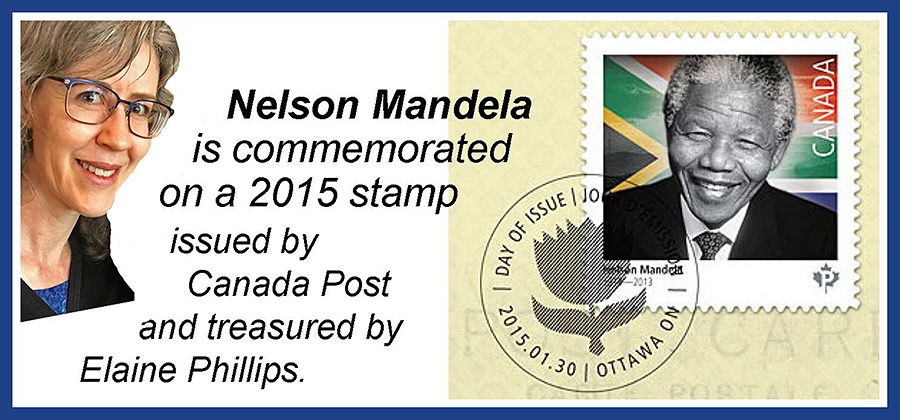
Mandela’s Listening Heart for Truth and ReconciliationCOFFEE WITH WARREN, with Warren Harbeck |

|
This week I’m running a guest column by Elaine Phillips, popular Cochrane lecturer on English literature and global thinker on issues related to the listening heart, theme of last week’s column. Originally from South Africa, she pays particular respect here to the embodiment of the listening heart, South African President Nelson Mandela, renowned for his founding of that country’s Truth and Reconciliation Commission to bring national healing in a post-apartheid era. Elaine? IN LAST WEEK’S COLUMN I was reminded of the leadership quality of the listening heart. As an immigrant from South Africa, I had the privilege of meeting a man who embodied this very quality. The leader in power when I left my beloved homeland for cooler climes more than 20 years ago was none other than Nelson Mandela, a man of integrity in word and deed. President of South Africa from 1994 to 1999, he was a man of peace, an ambassador of goodwill, impartial and sincere. Philanthropist and anti-apartheid revolutionary, Mandela was the country’s first head of state elected in a fully representative democratic election. Beloved by his nation, he was called “Madiba” by the wider public; his clan name, representing his ancestry, is used as a sign of affection and respect. After serving 27 years in prison, he was finally released in 1990, resulting in the 1994 multiracial general election in which he became president. His government focused on fostering racial reconciliation and created the Truth and Reconciliation Commission to investigate past human rights abuses. An icon of democracy and social justice, he received more than 250 honours, including the Nobel Peace Prize (jointly awarded to Nelson Mandela and F. W. de Klerk in 1993, for their combined efforts to end the apartheid regime, and for laying the foundations for a new democratic South Africa). In 1999 — the year he stepped down from the presidency — Time magazine named him one of the 20th century’s 100 most influential people. In the words of fellow South African Nobel Peace Prize laureate Desmond Tutu: “Like a most precious diamond honed deep beneath the surface of the earth, the Madiba who emerged from prison in January 1990 was virtually flawless.” Mandela — “Father of the Nation” — is remembered with love and respect within South Africa and internationally. In recent days I have wondered what would have happened had President Mandela (d. 2013) been alive today. What advice would he have given to communities fractured by historical and cultural injustices, such as the Indian Residential School system? Perhaps it is time to return to that listening heart exemplified by Mandela to see the dignity in all individuals, to hold out a hand of forgiveness and friendship with the calm assurance that all shall be well. May we develop leaders in the coming age who are “like the light of morning, governing with justice, compassion and humility.” September 30 in Canada has been designated as the National Day for Truth and Reconciliation, a federal statutory holiday. In doing so, the government of Canada “seeks to honour First Nations, Inuit, and Métis survivors and their families and communities, and to ensure that public commemoration of their history and the legacy of residential schools remains a vital component of the reconciliation process.” THANK YOU, Elaine. May Nelson Mandela’s spirit of the listening heart prevail in Truth and Reconciliation.
© 2021 Warren Harbeck |